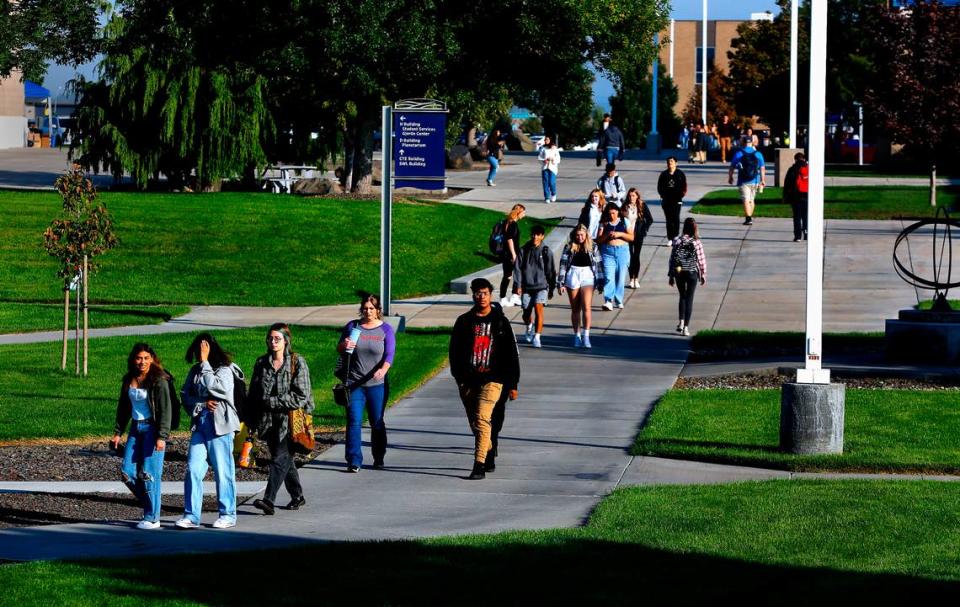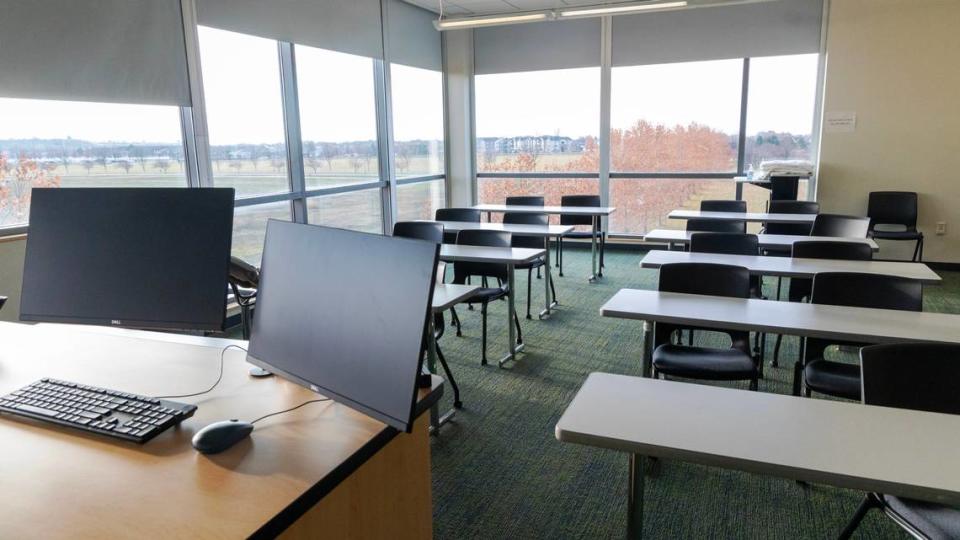New FAFSA student aid form giving you headaches? CBC, WSU Tri-Cities can help
Tri-City families and college students hoping to get their applications in early for federal financial aid are instead finding themselves frustrated with a new process.
The U.S. Department of Education on Dec. 31 “soft launched” a revised and simplified Free Application for Federal Student Aid (FAFSA) for the 2024-25 attendance cycle.
The new application — a mandate of the 2019 FAFSA Simplification Act — was supposed to make the process easier for students by allowing them to skip questions in lieu of a data exchange with the Internal Revenue Service.
Instead, issues with the system have complicated and prolonged what is an annual tradition for college families. Education Week recently compared the new process to buying hard-to-get tickets to Taylor Swift’s Eras Tour.
Financial aid experts at Columbia Basin College and Washington State University Tri-Cities are urging students to be patient and seek assistance if they’re having trouble with the new application. Many universities and colleges already have extended their priority deadlines to March.
“This is the largest change that has happened to the financial aid application in 40 years,” said Melanie Casciato, CBC’s director for student recruitment.
More than 14 million students are expected to file a FAFSA this year. The application — in addition to the Washington Application for State Financial Aid (WASFA) for undocumented students — opens the door financially for many students to further their education after high school.

Nearly half of all Tri-City college students are the first in their family to attend some sort of post-high school education.
But financial aid experts agree: If there’s one year to delay filing your application, this one might be it.
“We’re really asking families to pause, let the dust settle and then we’ll help you navigate these changes,” Casciato said.
FAFSA application issues
The new FAFSA process has worked flawlessly for some students and shaky for others, said Jana Kay Lunstad, WSU Tri-Cities’ campus registrar and director of financial aid.
Most of the issues revolve around two errors: Creating their unique Federal Student Aid ID (FSA ID) and getting information on the application to match the IRS data exchange.
“Students have to agree to a direct data exchange with the IRS and they’re not able to manually enter their income (anymore). And if they don’t agree to this direct data exchange, then they can’t complete the application,” Kay Lunstad said.
In some instances, students and parents have had their applications locked up because their names on the form don’t match those that are filed with the federal government.
The application process has also been plagued in its first week with intermittent outages that limit access. Students are also reporting long wait times to verify social security numbers.
Kay Lunstad said they’re also hearing from some parents who are not comfortable with the data exchange.
“We’re trying to reassure our parents and students that this is for the students’ education... It’s not to be used against them, it is used solely to determine their eligibility for aid,” she said.
But all these problems are not for nothing, Kay Lunstad says.
The Department of Education is actively resolving bugs and glitches, and the process is getting better. It’s estimated 610,000 more students from low-income backgrounds will be eligible to receive Federal Pell Grants, essentially free money for college, as eligibility this year expands.
On the new FAFSA, students can skip as many as 26 questions depending on their circumstances.
“This is a significant change and we do believe it will benefit more students. It’s just an adjustment this new year in learning the new application and helping the students through the changes,” she said.
Washington state has long lagged behind others in FAFSA completion rates, according to the Seattle Times.
Roughly 45% of the state’s class of 2023 filed an application, ranking it 47th among the 50 United States. Nationally, about 59% of the senior class completed the form.
Financial aid experts, including Kay Lunstad and Casciato, encourage all high school seniors and prospective college students to file a FAFSA because it’s the only way to find out if they’re eligible for assistance.

Financial aid help events
Need help filing your FAFSA? Experts with CBC, WSU Tri-Cities and Heritage University are available to help.
CBC is hosting multiple events this month at high schools and public libraries.
Registration can be found on the listed events on CBC’s public calendar at columbiabasin.edu.
Richland School District Financial Aid Night: 5:30-7:30 p.m. Tuesday, Jan. 30, at the Richland Public Library.
Kennewick School District Financial Aid Night: 5:30-7:30 p.m. Wednesday, Jan. 31, at Kennewick High School.
Pasco School District Financial Aid Night: 5-7 p.m. Thursday, Feb. 1, at CBC’s SWL Building.
Regular CBC Financial Aid Assistance Events: Feb. 6 and 27, and March 12. All events 3-6 p.m. and will be held at CBC’s SWL building.
WSU Tri-Cities is accepting invitations to come to high schools and will be at future STCU events. The campus’ financial aid department is also partnering with several school programs to help current students complete their application.
STCU Pasco Branch FAFSA Event: 5:30-7:30 p.m. Wednesday, Jan. 31, at 5677 Road 68.
Heritage University is also hosting several financial aid nights in the Tri-Cities and greater Yakima Valley area.
Tri-Cities Campus Family Financial Aid Night: 5-7 p.m. Wednesday, Jan. 31, at the Mid-Columbia Libraries Pasco branch.

